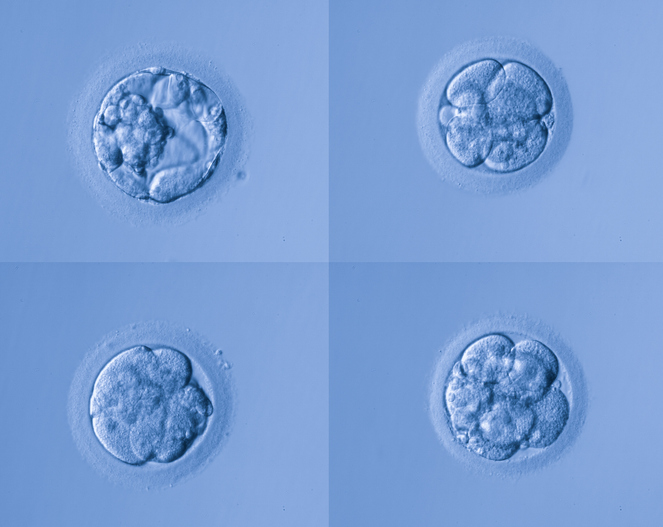

At Cofertility, our Split program gives women the opportunity to freeze their eggs for free when they donate half of the eggs retrieved to intended parents who can’t otherwise conceive. It’s a unique way to both plan for your own future and make an extraordinary impact on someone else’s. Because this journey is so important for both our Split members and intended parents, we want to be upfront about the factors that could disqualify someone from participating. Being transparent from the start helps ensure the best possible matches and outcomes for everyone involved.
Because participation in the Split program involves donating eggs to intended parents, eligibility standards are especially important. Some of the program disqualifiers come from Food and Drug Administration (FDA) regulations, while others are based on guidelines from organizations like the American Society for Reproductive Medicine (ASRM) or our partner clinics.
While it’s not possible to create an exhaustive list of every reason someone may not qualify for our Split program, this guide outlines some of the most common reasons for disqualification.
Age
To apply to be a part of the Split Program, you must be between the ages of 21-33. This is because you’ll need to complete your retrieval before you turn 35, so because the process can take some time, we don’t accept applicants who are 33.5 or older.
The reason for this age limitation is because data shows that, on average, those over 35 tend not to respond to fertility medication as well and therefore may not produce as many eggs. Also, research shows that, unfortunately, egg quality declines with age. Various factors may affect your cycle timing (application paperwork, time to match with a family, and more) and you will need to cycle before you turn 35. We’d hate for someone to apply, get accepted, and then when the time comes for the cycle itself, potentially age out.
If you are 34 - 39, you are still eligible to participate in our Keep program. With this program, you can freeze your eggs and keep 100% of them for yourself.
If you are under 21 and you’d like to participate, please reach out and we’ll get back in touch after you turn 21.
Health-related factors
As a preliminary step in the process, we’ll review several health-related factors.
For starters, you’ll need to have two ovaries and you cannot have taken a Depo Provera shot within the past 6 months, because it can interfere with the hormonal medications you’ll need to take during egg freezing.
Due to these same hormonal medications, you also cannot be currently pregnant or breastfeeding. You’re welcome to apply if you expect to stop breastfeeding within the next 6 months. If you plan to continue breastfeeding for 6+ months, we’d love for you to re-apply when the timing is right.
You will not qualify if you’ve had a sexually transmitted disease within the past 12 months (but can apply after 12 months of treatment). You also will be disqualified if you’ve been refused as a blood donor due to other infectious disease or medical conditions. Same goes if you’ve ever had a blood transfusion.
Additionally, body mass index (BMI) is one of the criteria used during egg donor screening— we understand that this can be a sensitive and sometimes controversial topic. Most fertility clinics require a BMI between 18 and 30 to be eligible for egg donation, and we have to follow these clinic requirements at Cofertility..
This range is largely based on concerns about procedural risk and egg retrieval outcomes. People with a higher BMI may face increased risks during anesthesia or complications related to egg retrieval. On the flip side, very low BMI can raise the risk of ovarian hyperstimulation syndrome (OHSS) and may affect hormone levels or cycle response.
That said, BMI alone is not a full picture of someone’s health. It doesn’t account for muscle mass, body composition, bone density, or ethnic and genetic differences. For athletes, for example, BMI can be especially misleading. And since BMI calculations were originally based on white, male body types, their use across populations can perpetuate racial inequities—especially among women of color, who are already disproportionately affected by both infertility and barriers to care.
If your BMI is currently outside this range, you’re welcome to reapply in the future. And regardless of your eligibility, we’re here to support you in exploring all your fertility options.
You can read more about BMI and egg freezing here.
Medical and family history
We will also review your and your family’s medical history. Unfortunately, this means that if you cannot confirm your biological family’s medical history, you will not qualify.
Though not an exhaustive list of every condition that may disqualify a member, when reviewing your personal and family medical history, we look for personal and/or family history of:
- Cancer
- Heart/blood disease
- Neurological diseases
- Mental health disorders
- Thyroid disorders
- Genetic disease
- Fertility issues
- Reproductive disease
- Autoimmune disease
- Respiratory disease
- Metabolic disease
- Gastrointestinal disease
- Kidney disease
- Birth defects
We review your personal and family medical history as a whole with our medical advisors. When reviewing, we consider the severity of the disease/conditions, number of relatives with the disease/condition, age of diagnosis, as well as that relative’s relation to you.
Psychological screening
There are also some psychological questions you’ll have to answer. We don’t expect you to be perfect. But note that certain psychological factors may be more likely to disqualify you than others. The goals here are both to reduce the chance for donor-conceived people to inherit health conditions, as well as to ensure the wellbeing of donors going through the process.
Per ASRM guidance, we will exclude those with a personal or first-degree (parents, siblings, offspring) family history of:
- Bipolar disorder
- Borderline personality disorder
- Alcoholism or drug abuse
- Suicide attempts
- Mood disorder
- PMDD
- Schizophrenia
- Schizoaffective disorder
- Major depressive disorder
We will also take into account the donor’s personal and family history of formal diagnoses of any other mental health conditions and the number and types of medications used to manage those mental health disorders.
Anti-Mullerian hormone (ovarian reserve) levels
As you likely know, women have a set egg quantity present at birth. Your eggs mature in ovarian follicles, and each of these follicles produces the anti-Mullerian hormone (AMH). Over time, this hormone level drops; eventually, it drops so low that women naturally develop what's known as a diminished ovarian reserve (DOR).
Your AMH level can help predict how well medication may work to stimulate your ovaries to produce eggs. It also tells doctors what dosage of drugs may be needed to do so. The higher the AMH level, the more eggs generally produced.
At Cofertility, aligned with typical clinic standards for egg donation, if your AMH < 2, you are ineligible for our Split program. We only accept Split Members with these higher AMH levels as it helps mitigate the possibility of retrieving very few eggs for your own use, one we split the mature eggs retrieved in half. If your AMH is <2, we will share more information with you about our Keep program, which you are more likely to be eligible for. See below for more details on Keep.
Genetic screening
As part of the process, you’ll also be required to do a genetic carrier screening via blood test or saliva sample. This helps ensure that embryos resulting from your eggs will lead to a viable pregnancy and that a child won't be born with severe disease.
But even for serious diseases, not all disease-related genes are deal-breakers. For example, if we find that you have a copy of a gene that can lead to cystic fibrosis, spinal muscular atrophy, or thalassemia, this may or may not disqualify you; it can depend on the clinic and genes of the intended parents.
In line with ASRM guidance, in most conditions where carrying one copy of a particular gene won't impact the child themselves, you can still qualify for the Split program.
Physical screening
In addition to genetic screening, you will have to undergo a physical screening to ensure you are physically healthy and producing a good number of eggs.
Some disqualifications here are set in stone by the Food and Drug Administration (FDA). If evidence of any of these conditions arises, you will be considered ineligible for the program. These are considered to be non-negotiable.
- HIV
- Hepatitis B
- Hepatitis C
- Human transmissible spongiform encephalopathy
- Treponema pallidum
The following could also be deal breakers:
- Issues with your ovaries, such as only having one ovary
- Hormone levels outside of recommended limits with concerns about your ability to produce sufficient eggs
- Any issues that would make the egg freezing and donation process risky for your health
- Evidence that you are at high risk of getting a sexually transmitted disease or could already have one. Doctors will look for discharge or ulcerative lesions for this purpose
- Indicators of possible drug use (needle tracks, for example) or exposure to needles in non-sterile conditions—including recent piercings or tattoos within the past 12 months
State-specific qualifications
Some states do maintain their own requirements for women who are donating eggs. These requirements will extend to those in our Split program and would be determined by the location of the clinic at which you would be conducting the retrieval.
Any state-specific egg donation qualifications will be evaluated at the time of your physical examination.
Additional disqualifying factors
Lastly, there are a few additional factors that would disqualify you from our Split program. These include if you:
- Have served jail time for more than two days
- Have undergone body piercing and/or tattooing within the past twelve months in which sterile procedures may not have been used
- Have the highest education level of GED
- Have Indigenous American ancestry and are registered with a tribe—this is due to the Indian Welfare Act. If you are able to receive an official letter with written permission from your tribe, you may be approved.
- Regular nicotine use, including vaping, , since the ASRM has confirmed an association between smoking and decreased fertility
Alternative option to Split: Cofertility’s Keep program
We want to make sure you know you have options. We know that fertility preservation is important to you, and we’d love to help you continue your egg freezing journey, even if it turns out that you’re not eligible for donation with our Split program. With our Keep program, you can self-fund your egg freezing journey at a discount and keep 100% of eggs retrieved for your own future use. You’ll continue to have access to our team and member community, along with exclusive discounts to lighten the financial load. You can get started by filling out our form here.
The net net
We know this sounds like a lot, but these disqualifiers are in place to respect the health and wellbeing of our Split members, intended parents, and donor-conceived children. If you have any questions about Split or Keep —including the factors outlined here—don’t hesitate to connect with us. While application decisions are final and we are unable to make exceptions on disqualifying factors or share individualized medical explanations, we are always happy to chat about our programs and help you understand your options.
You have tons to offer, and whether you qualify for the Split program is in no way reflective of your value. The most important thing is that you feel one hundred percent comfortable in any decision you make - and you know you have options. This is a big one, and we’re with you every step of the way.










